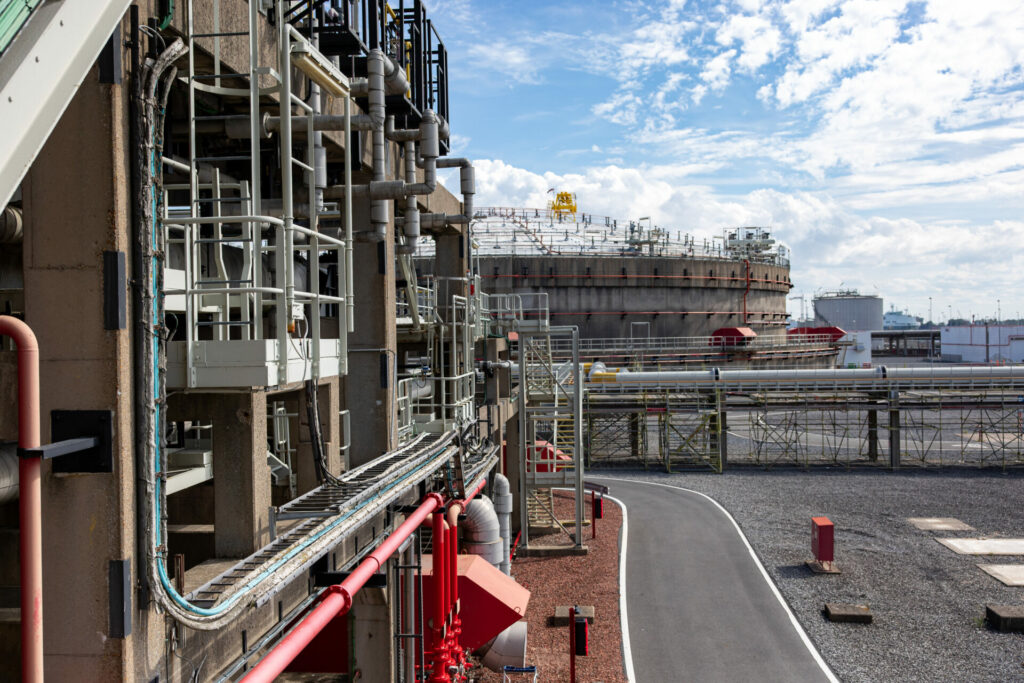Fears are growing that energy prices will soar across Europe next year, as a potential regional conflict in the Middle-East coupled with ongoing tensions between the West and Russia raise the prospect of a renewed energy crisis across the continent.
European gas prices have already spiked since Hamas fighters launched a bloody incursion into Israel from Gaza on 7 October, with the benchmark Dutch TFF gas hub price surging from €38 per megawatt hour (MWh) to €51 per MWh.
According to Damien Ernst, an expert on energy markets at the University of Liège, the increase was mostly driven by fears that Qatar, a key energy exporter which retains close ties to Hamas, could cut off shipments of liquefied natural gas (LNG) to Europe.
"The problem is that Europe does not have a backup plan in case of a stop in deliveries from Qatar," Ernst told La Dernière Heure (DH). "All the fallback solutions are already being used and Europe remains vulnerable."
"The good news is that Qatar seems to have reversed course," Ernst added. "They value their reputation as a reliable partner."
Increasing tensions, rising prices
Ernst's remarks follow a report published on Thursday by Eurostat, the EU's official statistics office, which found that household energy costs have increased significantly over the first half of this year.
The study noted that average household gas prices in the EU rose from €0.0861 per kilowatt hour (kWh) in the first half of last year to €0.1187 per kWh in the first six months of 2023: an increase of almost 40%.
The price hike is even more pronounced when compared to the first half of 2021, having almost doubled (from €0.0638 per kWh) since then. (Gas prices in Belgium are currently slightly below the EU average, at €0.1146 per kWh.)
Related News
- Gas prices rise sharply on back of Wagner rebellion
- 'Deconstructing the obvious'? Seymour Hersh on why the US blew up Nord Stream
Electricity prices tell a similar story, having risen from €0.2525 to €0.2890 per kWh over the past year: an increase of 14%. Gas prices have also risen by 31% since the first six months of 2021. (Electricity prices in Belgium are currently well above the EU average, at €0.4350 per kWh.)
A major cause of the increase is rising tensions between the West and Russia, which were exacerbated by Russia's full-scale invasion of Ukraine in February last year.
Prior to Russia's invasion, Russian pipeline gas imports made up 40% of Europe's total gas supply; they now account for less than 10%. Bizarrely, Europe's imports of more expensive Russian LNG have surged over the past year-and-a-half.
'Major risks'
Another key reason for the increase in prices is attacks on major energy infrastructure, including the destruction of the Nord Stream pipelines between Russia and Germany in September last year as well as the more recent sabotage of the Balticconnector, a key underwater gas pipeline between Finland and Estonia.
"This [attack on the Balticconnector] is something that has gone a little unnoticed in the international news, but it is extremely important," Ernst said. "Attacks on energy infrastructures in Europe or in Russia remain major risks. It seems today that a Chinese boat is at the origin of the incident on the Balticconnector, following a bad manoeuvre. But this story is still very weird."
Ernst added that Europe's main priority should be to increase its capacity for LNG imports. "The slightest problem at the geopolitical level can make things escalate," he said. "By 2025-2026, Europe will increase these liquefied gas capacities. But before then, 2024 will be the year of all dangers."

